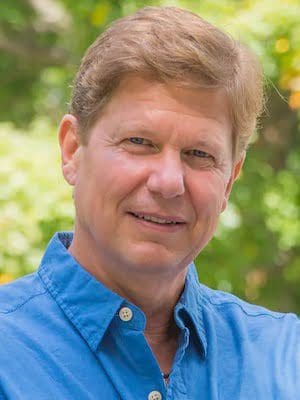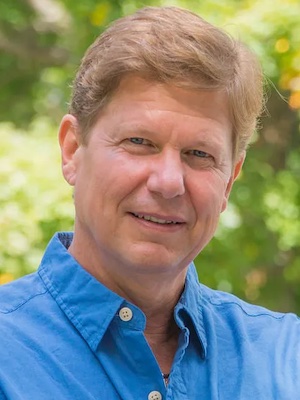
The email arrived on a Friday afternoon, a bolt out of the blue from Trinity International University. Any notice from a university president entitled “Reimagining the Future” can’t be good news.
Sure enough, after the treacly God talk – “educating men and women to engage in God’s redemptive work in the world,” equipping “in accordance with the scriptures and all for the sake of the gospel” – the shoe dropped.
Trinity College, in Deerfield, Illinois, my undergraduate institution, would cease to be a residential college; instead, undergraduate faculty would be offering “fully online courses and programs intended for global audiences.”
Aside from the Darwinian elements of this plan – furloughed (or about to be furloughed) faculty inevitably competing with one another for students – virtual instruction has long struck me as antithetical to the Christian doctrine of the incarnation, the theological notion that God took bodily form as Jesus. And that, in turn, seems inconsistent with an institution that loves to trumpet its fidelity to the scriptures.
If I sound a bit petulant and like I’m grieving, both are likely true. I should probably place my sentiments into context.
I attended both Trinity College and its sister institution, Trinity Evangelical Divinity School, in the 1970s, graduating with a B.A. in history from the first and an M.A. in church history from the latter. I also worked in the development office of the divinity school in the late 1970s as editor of its promotional magazine called (at the time) Voices.
It was during my time as an undergraduate at Trinity College, in the North Shore suburbs of Chicago, that I discovered the life of the mind, a truly transformative experience. I also deepened my faith, moving from the fundamentalism of my childhood toward a more (at that time) capacious evangelicalism.
Many of those at the college, however, felt very much like the neglected stepsister to the divinity school, which was considered – at that time, at least – one of the preeminent evangelical seminaries in the nation. And if you ever harbored any doubts about that, faculty and students at the divinity school were more than willing to remind you of how important they were.
While professors at the college were teaching five courses every semester, the divinity school was anointing many of its faculty with “research professor” status. This provided them with an attenuated teaching load presumably so they could publish their learned treatises and, thereby, slay the dragons of liberalism or neo-orthodoxy or whatever theological foe they detected on the horizon.
The paradox of this arrangement, as I can attest personally, was that the intellectual life at Trinity College was more salubrious, vibrant and engaging than that of Trinity Evangelical Divinity School.
The college dean, J. Edward Hakes, believed passionately in a liberal arts education from a Christian perspective, and he assembled an extraordinary faculty of recent Ph.D.s who gently prodded their students to question fearlessly and to think beyond the narrow confines of their upbringing.
It was exhilarating, and several generations of students still honor names like David Schlafer, Clark Barshinger, Nancy Hardesty, Doug Frank, Norm Ericson, Gerald Erickson, Ken Shipps, Doris Roethlisberger, William Graddy, George Strombeck, Mark Noll, Jacqueline Bell, Dave Carlson, Bill Moulder, Joel Carpenter and others.
No, they may not have published as much as their divinity school colleagues – tough to do while teaching five courses a term, although many did so once they were hired away from Trinity – but their intellectual rigor easily matched or exceeded their counterparts on “holy hill.”
Perhaps more important, they were unstinting in their devotion to students, both individually and collectively – that incarnation thing again, something difficult to do online.
What happened? The story is far too complicated to rehearse in detail, but the college dean retired and fundamentalists within the sponsoring denomination, the Evangelical Free Church of America, deposed the president for various crimes, including allowing a square dance on campus.
After his wife died suddenly, the president married a woman who had been divorced. The jackals descended, and a new president willing to cater to the fundamentalists took over.
The new president embarked on a reckless expansion program, adding a law school, two Florida campuses, a graduate school, a Bible camp and who knows what else. All of this he grandly rechristened as Trinity International University – or as my friend and fellow alumnus, Larry Eskridge, calls it, Trinity Intergalactic.
This is not a brief against the divinity school, although the arrogance of those associated with it was both palpable and insufferable. My time there nevertheless was formative; it helped propel me toward the academy and eventually to ordination.
I merely offer an alumnus’s perspective on the relative merits of the two schools, even as I acknowledge the Trinity that I remember from the 1970s is not the institution it is today.
I can’t speak to the university’s recent troubles, and I have no doubt that they are real. Evangelical higher education faces challenging demographics, and evangelical seminaries across the nation are hurting for money and students – all of this compounded by the Covid-19 pandemic.
I’ve been hearing stories for a while now about the dire straits of Trinity Evangelical Divinity School.
The “Reimagining the Future” missive didn’t specify what would be left after the dissolution of the college, but simple deduction (something I probably learned as an undergraduate) leaves us with the divinity school as the last one standing.
I’m sure the president and the Board of Regents have good reasons for making that decision.
Still, considering the history and the vitality of each place, I wonder if the powers that be aren’t closing the wrong school.
An Episcopal priest, Balmer is John Phillips Professor in Religion at Dartmouth College and the author of more than a dozen books, with commentaries appearing in newspapers across the country. He is a contributing correspondent at Good Faith Media.

